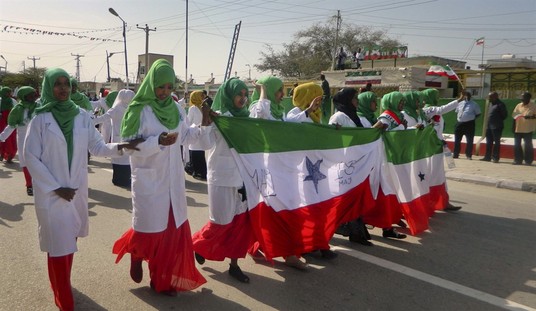Arms control is primarily a political task. As technology advances eventually there will be so many dangerous ‘whats’ that nonproliferation will become a question of ‘who’. In a few years weapons like biologicals may become more dangerous than the original Hiroshima bomb. September 11 showed that the modern life contained so many potentially lethal objects, like wide-body airplanes, that preventing mass mayhem must shift to finding bad guys. Arms control is a political problem. In a technologically advanced world the best hope for preventing mayhem is to encourage the spread of responsible government and to dismantle or prevent the emergence of totalitarian or failed states.
But if the administration shares that philosophy it’s not showing it. Today the Washington Post writes “Obama’s disregard for media reaches new heights at nuclear summit”. In an article bylined Dana Milbank, the WaPo says “World leaders arriving in Washington for President Obama’s Nuclear Security Summit must have felt for a moment that they had instead been transported to Soviet-era Moscow. … In the middle of it all was Obama — occupant of an office once informally known as “leader of the free world” — putting on a clinic for some of the world’s greatest dictators in how to circumvent a free press.”
Yasmeen Alamiri from the Saudi Press Agency got this lesson in press freedom when trying to cover Obama’s opening remarks as part of a limited press “pool”: “The foreign reporters/cameramen were escorted out in under two minutes, just as the leaders were about to begin, and Obama was going to make remarks. . . . Sorry, it is what it is.” …
Arabic-language MBC TV’s Nadia Bilbassy had this to say of Obama’s meeting with the Jordanian king: “We were there for around 30 seconds, not enough even to notice the color of tie of both presidents. I think blue for the king.” …
The Press Trust of India, at Obama’s meeting with the Pakistani prime minister, reported, “In less than a minute, the pool was asked to leave.” The Yomiuri Shimbun correspondent found that she was “ushered out about 30 seconds” after arriving for Obama’s meeting with the Malaysian prime minister. A reporter with Turkey’s TRT-Turk went to Obama’s meeting with the president of Armenia, but “we had to leave the room again after less than 40 seconds.”
Even the Chinese president, Hu Jintao, was more talkative with the press than Obama. Michelle Jamrisko, with Japan’s Kyodo News, noted that Hu, at his session with Obama, spoke to the Chinese media in Chinese, while Obama limited himself to “say hello to the cameras” and “thank you everybody.”
Reporters, even those on the White House beat for two decades, said it was the most restricted set of meetings they had ever seen in Washington. … The restrictions have become a common practice for the Obama White House. When Israeli Prime Minister Binyamin Netanyahu came to the White House a couple of weeks ago, reporters were kept away. Soon after that, Obama signed an executive order on abortion, again without any coverage.
Foreign Policy noted that President Obama is still working on perfecting democracy in the United States, so he is no position to judge anyone else.
President Obama said Sunday that the United States is still “working on” democracy and a top aide said he has taken “historic steps” to improve democracy in the United States during his time in office.
But for arms control to be meaningful, it must be exactly that: a judgment of who is allowed to handle deadly weapons in a 21st century world. And if the the behavior of the summiteers toward the press is any indication of the membership of the Club, it hardly inspires confidence. Any Club of rulers that is sufficiently inclined to operate in secret has got something to hide.
The administration was probably anxious to ensure that nothing sensitive leaked to the Press and even more determined to provide the guests with the kind of atmosphere they were used to at home. That is fair enough. But the fact remains that any workable arms control regime critically depends on who is going to implement it. A world which can control nuclear weapons (as a opposed to a world without nuclear weapons) is one which aspires to a minimum standard of governance. In the short run it may be necessary to limit Press access at a summit of this nature. But in the long run any world political system which is hostile to transparency will fail utterly at preventing the spread and use of weapons of mass destruction.










Join the conversation as a VIP Member